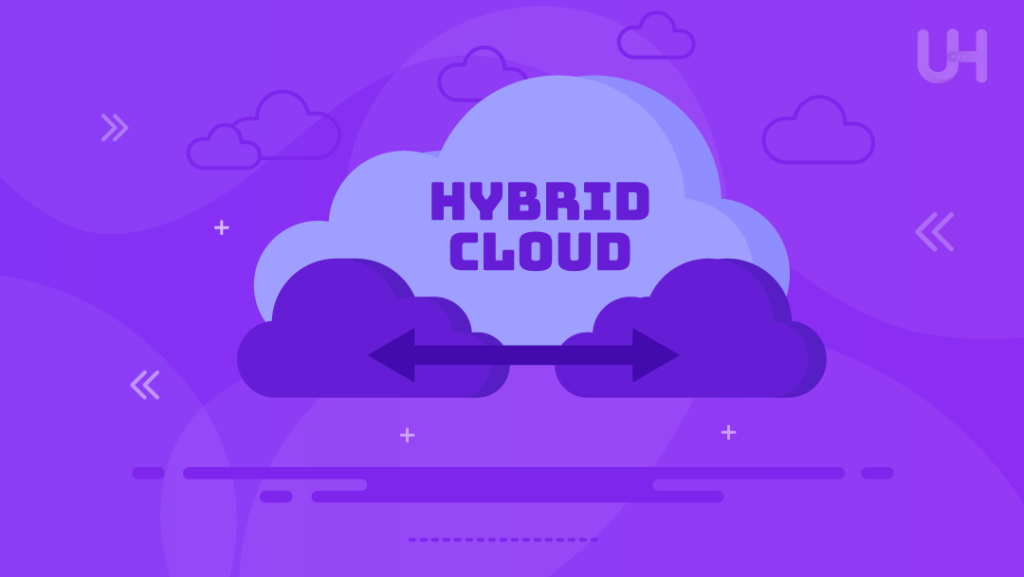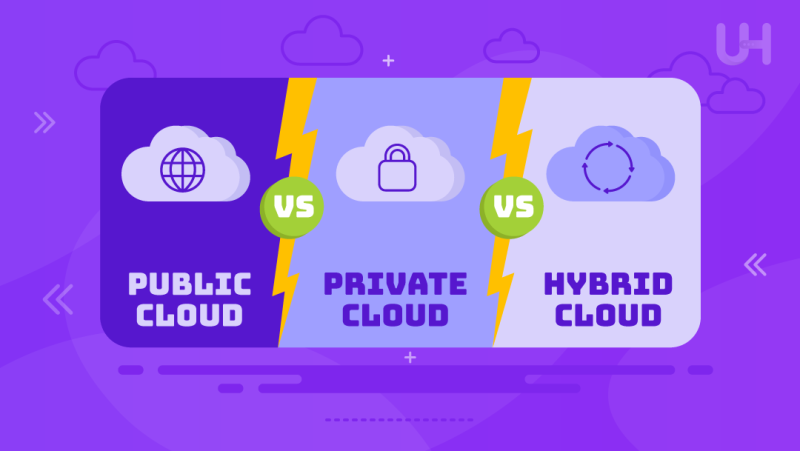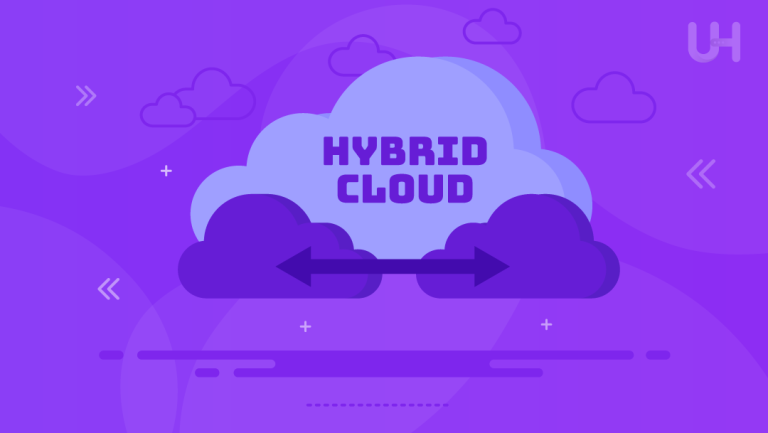The choice to implement a cloud infrastructure is crucial for contemporary businesses. As organizations increasingly depend on digital platforms and require remote access, selecting the appropriate cloud model—comparing Public Cloud vs Private Cloud vs Hybrid Cloud—can significantly influence the efficiency, scalability, and security of operations.
In this article, we will explore the differences between these cloud solutions, their benefits, challenges, and the scenarios where each option shines.
What Is a Public Cloud?
Public Cloud is a cloud computing model in which services such as storage, applications, and virtual machines are hosted on infrastructure that is shared among multiple users and managed by a third-party provider. This setup allows resources to be efficiently distributed across various users, often referred to as tenants, offering scalability and flexibility in accessing computing resources. Efficiently distributed across multiple users, often referred to as tenants, offering scalability and flexibility in accessing computing resources.
Key Features of Public Cloud
The Public Cloud offers several key features that make it an appealing choice for many organizations:
- Scalability: Public Cloud is its ability to scale resources up or down based on demand. This flexibility allows businesses to manage workload fluctuations without overcommitting resources efficiently.
- Cost-Effectiveness: Organizations can significantly reduce costs by utilizing Public Cloud services. There’s no need for substantial upfront investments in physical infrastructure. Many providers operate on a pay-as-you-go model. Users pay only for the resources they actually use.
- Ease of Access: The Public Cloud can be accessed from any device with an internet connection. This enables users to access their data and applications from virtually anywhere. The benefits include enhanced productivity and collaboration.
When considering solutions for small to medium-sized businesses, there are several advantages and disadvantages to consider.
Pros of Public Cloud
- Cost-effective: These solutions are typically budget-friendly, making them accessible for businesses with limited resources.
- Enhanced Reliability: They often provide high availability and features for disaster recovery, ensuring that businesses can maintain operations even during unexpected events.
- Expert Management: With services managed by external professionals, companies can alleviate some of the burdens on their internal IT teams, allowing them to focus on core business activities.
Public Cloud Cons
- Limited Control: Businesses may experience restricted control over their infrastructure, which can affect customization and flexibility.
- Security Risks: There may be potential security concerns associated with shared resources, as multiple organizations utilize the same underlying infrastructure.
Understanding these points can assist businesses in making informed decisions when evaluating their IT strategies. This approach is ideal for startups and SMBs that require flexible, cost-efficient solutions, development and testing environments, and applications that need extensive scalability.
Find the Perfect Balance for Your Hosting Needs!
Are you looking for an affordable hosting solution that offers the scalability of public cloud, the control of private cloud, or a hybrid of both? UltaHost VPS Hosting offers high performance, flexibility, and robust security tailored to your business needs.
What Is a Private Cloud?
A Private Cloud is a specialized cloud environment exclusively designated for a single organization. It can either be hosted on the organization’s premises or managed by a third-party provider. This setup allows the organization to maintain complete control over its resources and infrastructure, ensuring tailored performance and enhanced security.
Key Features of Private Cloud
Before utilizing a Private Cloud, it’s essential to understand its key features:
- Exclusive Use: Private Cloud environments utilize dedicated hardware and resources, ensuring that your operations are isolated from others.
- Customizable Infrastructure: They offer the flexibility to tailor the infrastructure according to your unique business needs. This allows for greater alignment with your specific requirements.
- Enhanced Security: Private Clouds offer robust security controls for protecting sensitive data. These controls provide an added layer of safety for your critical information.
Private Cloud Pros
- Offers greater control and customization options for tailoring to specific needs.
- Provides enhanced data security and data privacy measures to protect sensitive information.
- Complies with industry standards required for regulated sectors, ensuring adherence to legal and regulatory requirements.
Cons of Private Cloud
- Involves a higher initial investment and ongoing costs that may be a concern for some organizations.
- Necessitates a skilled IT team for effective maintenance and management, which can be a challenge for those lacking such expertise.
Private Cloud is ideal for enterprises that handle sensitive data, such as those in healthcare or finance. It is particularly suited for businesses with stringent compliance requirements and organizations that seek maximum control over their IT environment.
What Is a Hybrid Cloud?

Hybrid Cloud is a cloud computing model that unites the benefits of both public and private clouds. By integrating on-premises infrastructure (private cloud) with public cloud services, businesses can achieve greater flexibility and optimize the distribution of their workloads. This approach allows organizations to take advantage of the scalability of public clouds while maintaining the control and security of private cloud storage, creating a more efficient and adaptable IT environment.
Key Features of Hybrid Cloud
The features of Hybrid Cloud encompass several key aspects:
- Workload Distribution: This approach allows organizations to allocate critical workloads to private clouds, ensuring security and compliance, while less sensitive tasks can leverage the cost-effectiveness and flexibility of public clouds.
- Scalability with Control: Hybrid Cloud combines the scalability advantages of public cloud resources with the control and security measures inherent to private clouds, providing a balanced environment suited to varying business needs.
- Integrated Infrastructure: The architecture of the Hybrid Cloud facilitates seamless communication and integration between physical servers and cloud servers, allowing for greater efficiency and streamlined operations across different platforms.
Advantages of Hybrid Cloud:
- Cost, Performance, and Security Balance: A hybrid cloud environment effectively balances these three crucial aspects, allowing organizations to optimize their resources.
- Gradual Cloud Migration: This model supports a phased approach to cloud adoption, making it easier for businesses to transition without significant disruptions.
- Efficient Workload Support: Hybrid clouds are adept at handling a variety of workloads, offering flexibility and efficiency for different applications and services.
Hybrid Cloud’s Disadvantages:
- Management Complexity: The integration of on-premises and cloud resources can lead to complexities in management, requiring careful coordination.
- Need for Advanced IT Skills: Organizations may require specialized IT expertise to effectively manage and maintain a hybrid cloud environment.
It is ideal for businesses with fluctuating workloads, as well as for companies transitioning to the cloud and organizations that are balancing security and scalability.
Public Cloud vs Private Cloud vs Hybrid Cloud: Key Differences
| Feature | Public Cloud | Private Cloud | Hybrid Cloud |
| Infrastructure | Shared | Dedicated | Combination of both |
| Cost | Low | High | Moderate |
| Security | Standard | High | Flexible |
| Scalability | High | Limited | High |
| Control | Minimal | Maximum | Balanced |
| Use Case | General workloads | Sensitive workloads | Mixed workloads |
Factors to Consider When Choosing a Cloud Model
Budget
Public cloud solutions are generally more cost-effective, making them an attractive option for startups and small to medium-sized businesses (SMBs). On the other hand, private clouds typically involve substantial investment; however, they offer enhanced data encryption features that can be crucial for certain organizations. Hybrid clouds provide a balanced approach, combining elements of both public and private clouds, but companies should be aware that they may face hidden integration costs that can affect overall budgeting.
Scalability
Choose public or hybrid cloud solutions if you anticipate varying demands for your resources. These cloud options provide the flexibility to scale up or down based on your specific needs, making them ideal for businesses that experience changes in traffic or workloads.
Compliance
Industries that are subject to strict data privacy regulations find significant advantages in utilizing private or hybrid cloud environments. The benefits of private or hybrid cloud environments emphasize enhanced security measures, greater control over sensitive data, compliance with legal requirements, and the flexibility to scale operations and integrate diverse applications.
Public Cloud vs Private Cloud vs Hybrid Cloud Examples
An example of a Public Cloud is a small e-commerce site that utilizes eCommerce Hosting for a cost-effective and scalable solution. A financial firm that chooses dedicated hosting to safeguard sensitive customer data is an example of a Private Cloud. In contrast, a Private Cloud refers to this type of hosting solution. Lastly, a media company that uses Virtual Dedicated Server Hosting for secure storage while also leveraging public cloud resources for streaming content is an example of a hybrid cloud.
Choosing the Right Cloud for Your Business
Choosing the right cloud model is crucial and should be based on your organization’s specific requirements. For startups operating with limited budgets, the Public Cloud offers an economical solution with scalable resources. On the other hand, enterprises managing sensitive data can benefit from a Private Cloud. A Private Cloud provides enhanced security and control. Lastly, for organizations that require a balance between scalability and security, a Hybrid Cloud model can offer the necessary flexibility to meet diverse needs.
Conclusion
Understanding the differences between public, private, and hybrid clouds is essential for making informed decisions. You can optimize performance, cost, and security by evaluating your business needs and leveraging the appropriate hosting solutions.
Utilizing a public, private, or hybrid cloud strategy with dependable cloud-based web hosting from UltaHost can enhance your business’s performance and security. Embrace the future of IT infrastructure and learn how we can assist you.
FAQ
What are the key differences between public, private, and hybrid clouds?
Public clouds are shared and cost-effective. Private clouds offer exclusivity and security, while hybrid clouds combine both for flexibility.
Which cloud is best for startups?
Startups benefit most from public clouds due to their scalability and cost-effectiveness.
How does a hybrid cloud work?
A hybrid cloud integrates private and public clouds, distributing workloads based on security and performance needs.
Is a private cloud more secure than a public cloud?
Yes, private clouds provide greater control and security due to dedicated resources.
What are some public cloud examples?
Public cloud providers include AWS, Microsoft Azure, and Google Cloud Platform.
Why choose a hybrid cloud?
Hybrid clouds offer the scalability of public clouds and the security of private clouds, ideal for businesses with mixed workloads.
What hosting services align with hybrid cloud benefits?
Services like Cloudflare hosting provide scalability and security, mirroring hybrid cloud advantages.










